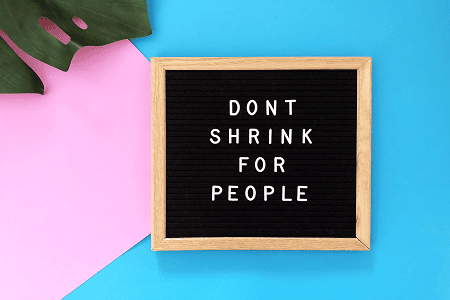 Introduction
Introduction
In the realm of mental health and emotional well-being, a powerful tool often overlooked is humor. Laughter is a universal language that transcends cultural boundaries and has been an intrinsic part of human experience throughout history. Beyond its entertainment value, laughter holds a unique position in the realm of psychology and neuroscience, offering a range of benefits for mental and emotional health. This article delves into the science of laughter, exploring how humor can play a significant role in promoting positive mental and emotional well-being.
The Neuroscience of Laughter
Laughter isn't just a random reaction; it's deeply rooted in our brain's complex architecture. Neurologically, laughter is regulated by a series of interconnected regions in the brain, including the cerebral cortex, limbic system, and brainstem. The cerebral cortex, responsible for higher cognitive functions, processes the humor in a situation. The limbic system, associated with emotions, controls the pleasurable feeling we experience while laughing. The brainstem coordinates the physical expression of laughter, triggering muscular contractions in the face, chest, and diaphragm.
Research shows that humor stimulates the release of endorphins, often referred to as "feel-good" hormones. These neurochemicals play a crucial role in reducing stress and anxiety, promoting an overall sense of well-being. The act of laughing also triggers the release of dopamine, a neurotransmitter associated with reward and pleasure. This neurochemical cascade can contribute to an improved mood and a sense of euphoria.
The Psychological Benefits of Humor
Humor's positive impact on mental health goes beyond the realm of neurobiology. Psychological research has uncovered several ways in which humor can contribute to better mental and emotional well-being.
-
Stress Reduction: In the face of stress, laughter can act as a natural stress-reliever. It diminishes the production of cortisol, a hormone linked to stress. Engaging in humor redirects the mind from negative thought patterns, providing a temporary escape and allowing individuals to gain perspective on their challenges.
-
Enhanced Coping Mechanisms: Humor serves as an adaptive coping mechanism. It helps individuals navigate through difficult situations by creating a buffer between the individual and the stressor. When people can find humor even in challenging circumstances, they often exhibit greater resilience.
-
Social Bonding: Shared laughter fosters a sense of connection and camaraderie among individuals. When people laugh together, it promotes social bonding, reducing feelings of isolation and loneliness. This is particularly relevant in the context of mental health, where a strong support network is crucial.
-
Improved Communication: Humor can break down communication barriers, making interactions more enjoyable and effective. When humor is used appropriately, it creates a positive atmosphere, easing tensions and promoting open dialogue, both of which are essential in therapeutic settings.
Humor as a Coping Mechanism
Humor can be a powerful coping mechanism for individuals dealing with mental health challenges. In some cases, humor allows individuals to distance themselves from their problems temporarily, providing relief from emotional distress. This can be particularly helpful for those with conditions like depression and anxiety.
It's important to note that while humor can be a valuable tool, it's not a replacement for professional treatment. Individuals struggling with severe mental health conditions should seek guidance from mental health professionals. However, humor can complement traditional therapies by offering an additional layer of support and relief.
Incorporating Humor into Daily Life
Integrating humor into daily life doesn't require being a stand-up comedian. Simple steps can be taken to harness the power of laughter for improved mental and emotional well-being.
-
Watch and Read Humorous Content: Engaging with funny movies, TV shows, books, and online content can be an enjoyable way to infuse humor into daily life. Platforms dedicated to comedy can provide a regular dose of laughter.
-
Cultivate Playfulness: Embrace a playful attitude and look for opportunities to find humor in everyday situations. Playfulness encourages creativity and spontaneity, both of which contribute to a lighter outlook on life.
-
Connect with Humorous People: Surrounding yourself with individuals who have a good sense of humor can be contagious. Engaging in lighthearted conversations and shared laughter can boost your mood and create a positive environment.
-
Practice Self-Deprecation: In a healthy and controlled manner, engaging in self-deprecating humor can promote humility and self-acceptance. It helps to take oneself less seriously and foster a sense of authenticity.
-
Try Laughter Yoga: Laughter yoga is a growing practice that combines laughter exercises with yogic deep-breathing techniques. It has been found to reduce stress and improve overall well-being.
Conclusion
In the pursuit of improved mental and emotional health, humor emerges as a valuable ally. The science of laughter underscores its significance as a natural stress-reliever, mood enhancer, and social bonding agent. By understanding the neurological and psychological mechanisms at play, individuals can harness the power of humor to alleviate stress, cope with challenges, and cultivate a more positive outlook on life. As an accessible and enjoyable tool, humor stands as a testament to the intricate connection between mind and body, reminding us of the profound impact laughter can have on our overall well-being.
Hashtags: #LaughterAndMentalHealth #HumorForWellBeing #ScienceOfLaughter #EmotionalWellness #StressRelief #CopingWithHumor #PositivePsychology #MentalHealthSupport #HumorTherapy #LaughMoreLiveWell






